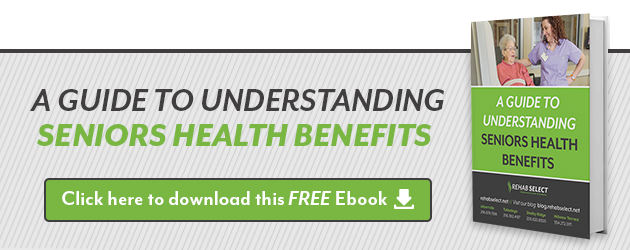 As people get older, one bodily structure that tends to deteriorate is the bone system. Bones are critical for everyday life, but many seniors have trouble with the health of their bones; due to age, certain types of diseases can cause bones to wear down more quickly than normal.
As people get older, one bodily structure that tends to deteriorate is the bone system. Bones are critical for everyday life, but many seniors have trouble with the health of their bones; due to age, certain types of diseases can cause bones to wear down more quickly than normal.
Types of Bone Ailments
Besides the normal wear and tear placed on bones over the course of someone’s life, there are also some bone diseases that can further the damage sustained by the skeletal system. There are two kinds that are more common than others:
Arthritis – Arthritis is a condition that can impact all parts of the body, including the hips, back, neck, and hands. It generally involves the inflammation or deterioration of the ligaments and muscle tissue that connect human bones together, which causes pain when the bones grind against each other. The two common types of arthritis are osteoarthritis, which is the most common kind that affects the elderly and others who overuse their joints, and rheumatoid arthritis, which is caused by the body releasing enzymes that attack joint linings.
Osteoporosis – Osteoporosis is a condition in which the bone tissue is weaker than it normally should be, making it more prone to damage and fractures. Women are more frequently affected by osteoporosis than men, and aging bone health is one common reason for the disease. Luckily for sufferers of this disease, it is highly treatable.
Tips for Maintaining Aging Bone Health
Whether you have osteoporosis, arthritis, another bone disease, or you are simply looking for tips on strengthening your bones, it is important that you understand what steps to take to maintain your bone strength as you get older. A few of the most common tactics recommended by healthcare providers for maintaining bone strength include:
-
Improving your diet: this is one of the most important steps for maintaining your aging bone health, especially if you have osteoporosis. You must be sure to eat plenty of foods that are rich in calcium and Vitamin D, including fish, milk, and eggs, so that your bones have the necessary nutrients to stay strong.
-
Exercise: in particular, range of motion exercises such as stretching and yoga are helpful to keep your muscles functioning and prevent swelling. Weight lifting is also a helpful form of exercise to help you strengthen your muscles and stabilize your joints. Before beginning a program of exercise, it is always best to consult with your doctor or healthcare provider, especially if you have a pre-existing bone condition.
-
Staying at a healthy weight: the more weight that your bone structure has to carry, the more stress it will be placed under. For this reason, it is highly advisable to take steps to get your body weight down to a healthy level, if you are not already.
There are plenty of other things that you can do to keep your bones in the best possible condition. For more details about keeping your bones healthy as you get older, consult with a medical specialist.





